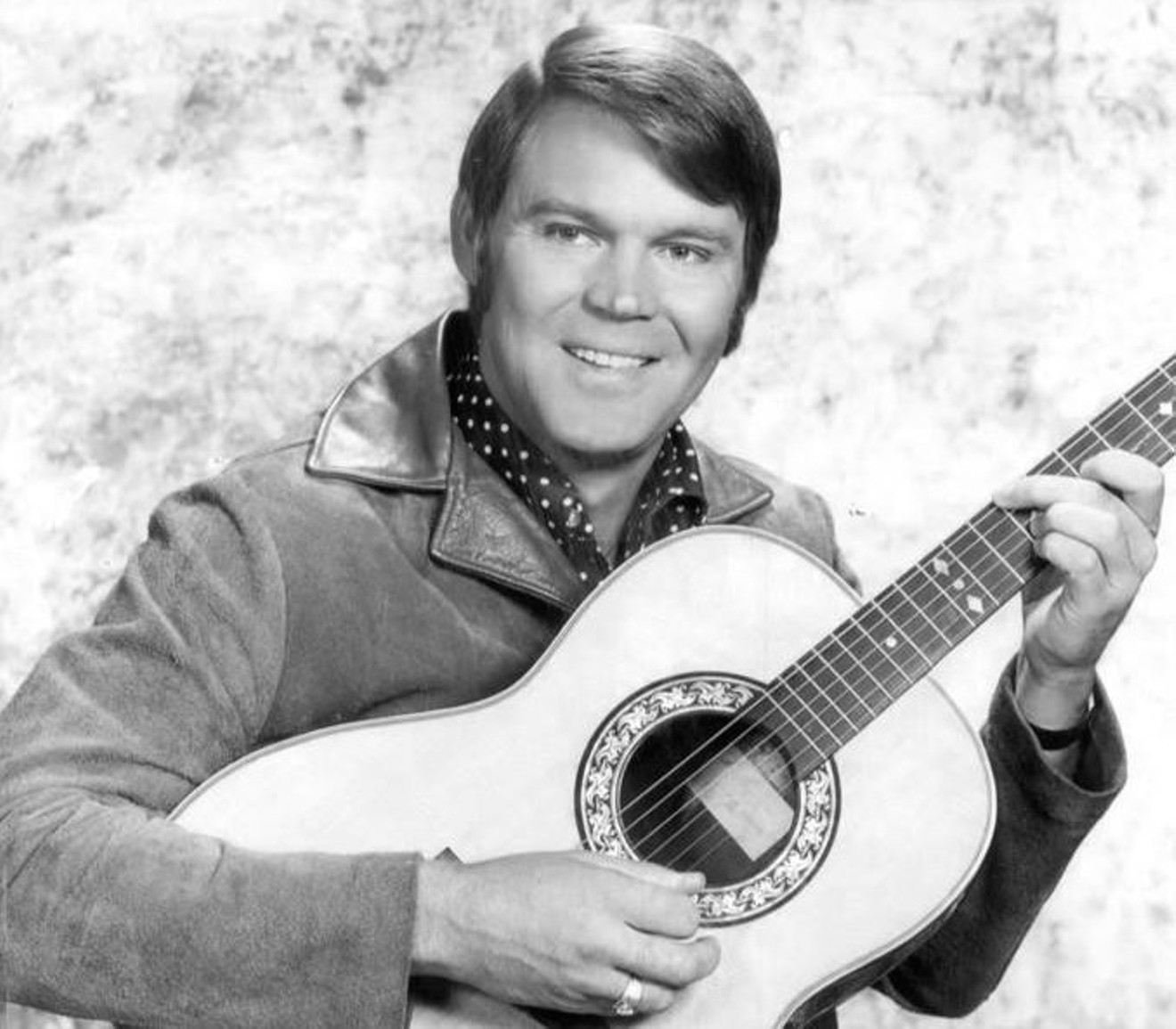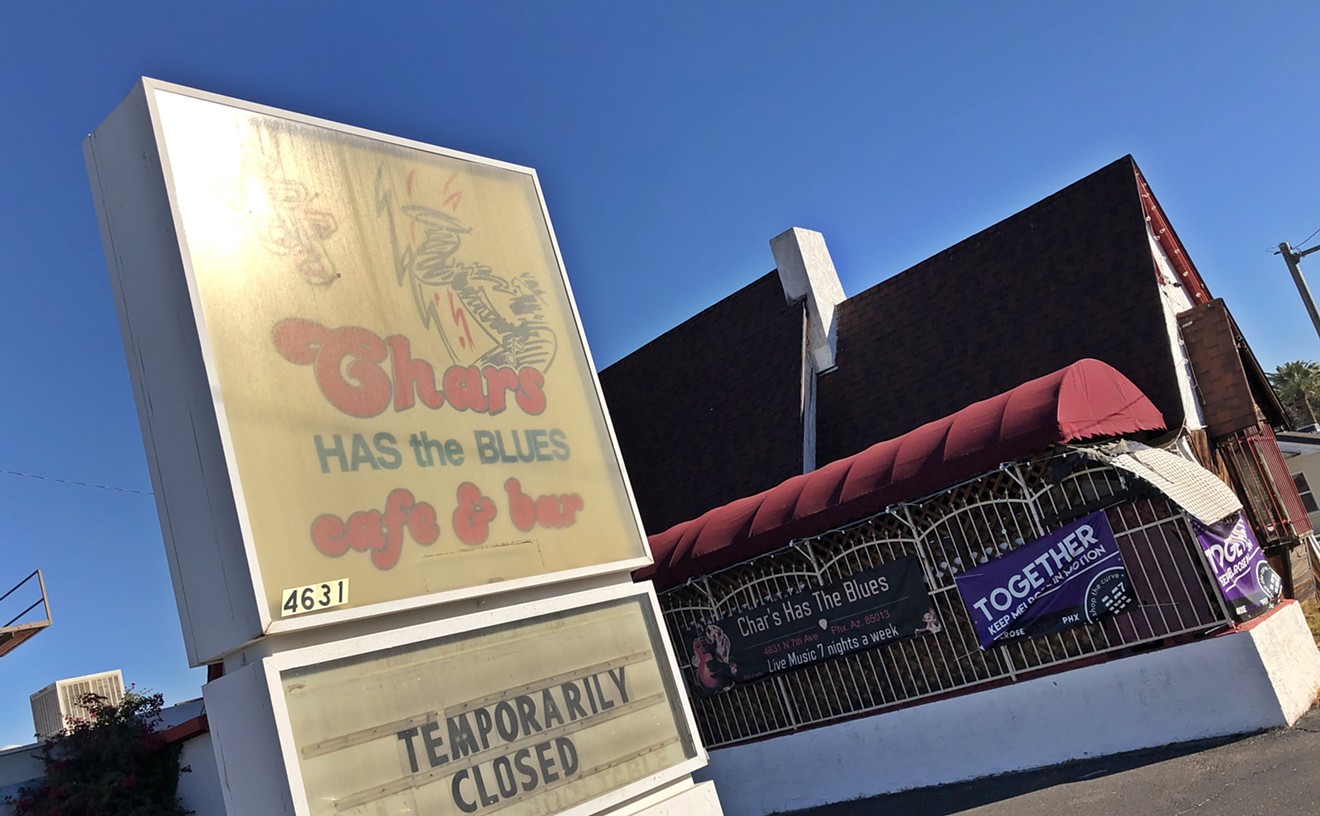A few days ago, my husband brought home a Glen Campbell album. “It’s still sealed!” he reported, because he knew that would matter to me. The next morning we peeled the 46-year-old shrink wrap off of Last Time I Saw Her, Campbell’s 20th studio album released in 1971. We sipped coffee and listened to Campbell’s gentle tenor make something new of then-recent tunes. We talked about how his take on Joe South’s “Rose Garden” worked because he wasn’t trying to re-imagine it as something other than a neat country-pop gem. Likewise his reading of Cindy Walker’s gently rolling “Dream Baby” and Kris Kristofferson’s “Help Me Make it Through the Night,” the ultimate fuck song to which Campbell brought nothing more innovative than a tidy key change in the second stanza.
The morning after Campbell’s August 8 death from Alzheimer’s disease, we broke out a recently purchased copy of his eighth album, 1968’s Hey, Little One. We marveled at his ability to put a personal stamp on songs so closely associated with their authors — in the case of this album, everyone from Bob Lind (“Elusive Butterfly”) to Bob Dylan (a dreamy cover of “I Don’t Believe You”). The record wraps up with a late-to-the-party cover of “The Impossible Dream,” already a standard three years after Man of La Mancha bowed on Broadway. Even here, Campbell manages to burnish a musical cliché with rich tones and an earnest delivery.
When famous people die, they almost at once become — in print, at least — a list of their accomplishments. Thus, memorials of Campbell rattle off his many triumphs: the popular late-1960s television variety show; his tenure with the famous Wrecking Crew, that cadre of workhorse West Coast musicians; his stint as Brian Wilson’s replacement in a 1964 Beach Boys tour. Many mention his induction into the Country Music Hall of Fame and the occasional movie role (“I was a lousy actor,” he told The New York Times in the 1980s).
Most tributes listed Campbell’s 1970s novelty hits (“Rhinestone Cowboy” often made it into the headlines of his obituaries, perhaps for obvious reasons), the 45 million records sold, the 67 albums, and 82 charting singles. Many mentioned his inspired readings of Jimmy Webb hits, notably “Wichita Lineman” and “By the Time I Get to Phoenix.”
Pretty much no one’s writing about the elegance Campbell brought to the simpler material he favored. His and Bobbie Gentry’s sleepy recording of “Let it Be Me” is buried in horns and strings, but Campbell’s vocal run in the bridge brings a sexy strut the Everly Brothers’ original never had. His rushed reading of Brian Wilson’s brilliant Wall of Sound single, “Guess I’m Dumb,” never breaks a sweat, yet shows off Campbell’s wide range unlike pretty much anything else he recorded. Even on pap, his vocal instruments were pure tone and buried emotion, coupled with elegant phrasing — a rarity among country-pop singers of the time.
If Campbell was an excellent guitar player, it’s likely thanks to all those hours he spent as a session guy. (According to one assessment of his career, he performed on close to 600 tracks with the Wrecking Crew in 1963 alone.) That much string-picking hammered out Campbell’s skill at, as he once told a Rolling Stone reporter, “playing right on the edge of the beat,” so that his licks sounded as if they were just ahead of the song’s rhythm.
“We had to learn how to play behind every singer’s voice,” he told the same reporter. “I remembered every vocal trick I heard, and every guitar lick I heard in those days.” No kidding: Campbell’s warm, facile delivery of Webb’s sometimes dense poetry made it sound like smart pop. His 2008 cover of the Foo Fighters’ “Times Like These” swaps the original’s scorching guitar jam with the orchestral sweep of Campbell’s middle-period Atlantic Records tracks.
Like several country music icons, Campbell enjoyed a late-career revival. Unlike Loretta Lynn and Johnny Cash’s reinventions, Campbell’s last act doesn’t sound like a rescue from an upstart fan boy. His final album, 2017’s Adios, gave us precisely what Campbell has always offered: quieter, sexier takes on standards by Bob Dylan and Jimmy Webb, all of them sung in that gorgeous, honeyed voice he left behind for us to admire.
[
{
"name": "Air - MediumRectangle - Inline Content - Mobile Display Size",
"component": "18478561",
"insertPoint": "2",
"requiredCountToDisplay": "2"
},{
"name": "Editor Picks",
"component": "16759093",
"insertPoint": "4",
"requiredCountToDisplay": "1"
},{
"name": "Inline Links",
"component": "17980324",
"insertPoint": "8th",
"startingPoint": 8,
"requiredCountToDisplay": "7",
"maxInsertions": 25
},{
"name": "Air - MediumRectangle - Combo - Inline Content",
"component": "16759092",
"insertPoint": "8th",
"startingPoint": 8,
"requiredCountToDisplay": "7",
"maxInsertions": 25
},{
"name": "Inline Links",
"component": "17980324",
"insertPoint": "8th",
"startingPoint": 12,
"requiredCountToDisplay": "11",
"maxInsertions": 24
},{
"name": "Air - Leaderboard Tower - Combo - Inline Content",
"component": "16759094",
"insertPoint": "8th",
"startingPoint": 12,
"requiredCountToDisplay": "11",
"maxInsertions": 24
}
]










